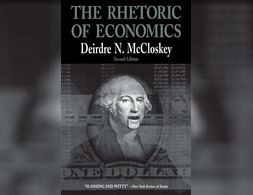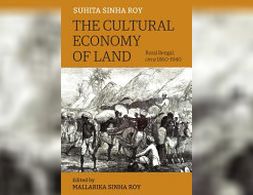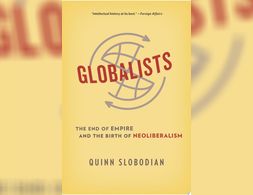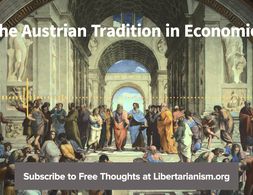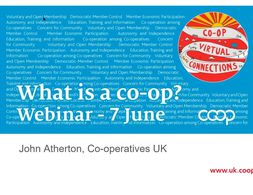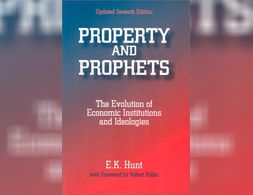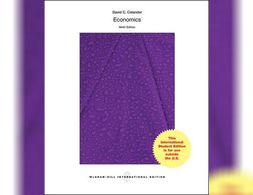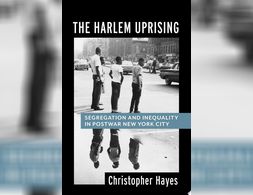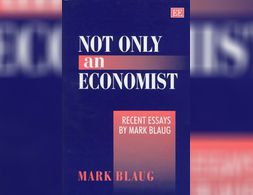✕
487 results
Following an unprecedented economic boom fed by foreign investment, the Russian Revolution triggered the worst sovereign default in history. Bankers and Bolsheviks tells the dramatic story of this boom and bust, chronicling the forgotten experiences of leading financiers of the age.
Author of a dozen books in economics and history, she was formerly known as Donald. Her experience in changing gender is reflected in the new edition, but the message remains the same: economics needs to get serious about its rhetoric, and back to science.
This book provides important insights into agrarian history and the economic and cultural meanings associated with land.
Finance at the Threshold offers a unique perspective from an English economic and monetary historian. In it the author asks: Why did the banks stop lending to one another, and why now? Was it merely a matter of over-loose credit due to the relaxation of traditional prudence, or did global finance find itself at its limits?
The global financial crisis (GFC) led to increasing distrust in economic research and the economics profession, in the process of which the current state of economics and economic education in particular were heavily criticized. Against this background we conducted a study with undergraduate students of economics in order to capture their view of economic education.
The book explores the imperialist tendency inherent in global capitalism by using a rigorous political economy framework.
This course introduces students to the relevance of gender relations in economics as a discipline and in economic processes and outcomes. The course covers three main components of gender in economics and the economy: (1) the gendered nature of the construction and reproduction of economic theory and thought; (2) the relevance and role of gender in economic decision-making; and (3) differences in economic outcomes based on gender. We wil touch on the relevance of gender and gender relations in at least each of the following topics: economic theory; the history of economic thought; human capital accumulation; labor market discrimination; macroeconomic policy, including gender budgeting; household economics; basic econometrics; and economic crises.
In the history of the social sciences, few individuals have exerted as much influence as has Jeremy Bentham. His attempt to become “the Newton of morals” has left a marked impression upon the methodology and form of analysis that social sciences like economics and political science have chosen as modus operandi.
In the first intellectual history of neoliberal globalism, Quinn Slobodian follows neoliberal thinkers from the Habsburg Empire’s fall to the creation of the World Trade Organization to show that neoliberalism emerged less to shrink government and abolish regulations than to deploy them globally to protect capitalism.
In this classic work of economic history and social theory, Karl Polanyi analyzes the economic and social changes brought about by the "great transformation" of the Industrial Revolution.
This is a recording of an introductory course held at the 4th International Degrowth Conference for Ecological Sustainability and Social Equity in Leipzig in 2014. Federico Demaria from the French-Spanish organisation Research and Degrowth gives an introduction to degrowth. The presentation is based on the introduction to the book “Degrowth. A vocabulary for a new era.” and discusses definitions of degrowth, degrowth literature, debates, history and further research to be done.
The podcast exposes the concept and principles of co-operatives and the three main types of co-operatives: the consumer, credit and farmers buying and selling co-operatives. Furthermore, the history of the co-operative movement is presented. The authors draw the line from co-operatives to "degrowth" by arguing that these organisations discourage profit maximisation due to their ownership structure, their social purpose and their primacy of people over capital. The value of the members' co-operative share does not increase with the growth of a co-operative and it can not be used for speculation. Finally, the authors give examples for current co-operatives which empower (local) communities fostering social justice and environmentalism.
The documentary recounts the history of the first World War and gives a biography of Lenin. The concept of imperialism is briefly explored and it is concluded that by the end of world war one the old certainties and old ruling alliances between aristocracy and traditional capitalists were broken up.
John K. Galbraith recounts episodes in the history of money such as the creation of the bank of Amsterdam, John Law's fraudulent Bank Royal, the inception of the Bank of England and of the Federal Reserve to illustrate concepts such as money creation by commercial banks, the bank rate, open market operations or the money supply in general. The emotions, myths and struggles surrounding money are addressed and explained in a clear and consistent manner.
John K. Galbraith tells the economic history of a couple of economies (mostly UK, US and to a lesser extent Germany) from the end of the first world war until the Bretton Woods conference. He also provides a biography of John M. Keynes and outlines some central ideas of Keynes such as the possibility of an underemployment equilibrium. Galbraith complements the historical remarks by the biographical experiences he made in economic management (and in engaging with Keynes) serving as deputy head of the Office for Price administration during the second world war.
Peter Boettke, Professor of Economics and Philosophy at George Mason University, talks about the history and the main methodological and epistemological tenets of the Austrian school. He argues that good economics is the mainline tradition of "squaring rational choice with the invisible hand theorem through institutional analysis".
Andrew McAfee about the history of human progress and the modern uncoupling of our prosperity from resource consumption. They discuss the pitfalls and hidden virtues of capitalism, technological progress, environmental policy, the future of the developing world, and other topics.
In this podcast 'How Economic Theory and Policy Reinforce Racism' William Spriggs, the AFL-CIO’s chief economist, discusses the inadequacies of the pandemic economic rescue package and the influence of mainstream economic theory. He further explores how mainstream economic theory continues to fail everyone, especially Black communities, by disregarding history.
Since the 1980s, the financial sector and its role have increased significantly. This development is often referred to as financialization. Authors working in the heterodox tradition have raised the question whether the changing role of finance manifests a new era in the history of capitalism. The present article first provides some general discussion on the term financialization and presents some stylized facts which highlight the rise of finance. Then, it proceeds by briefly reviewing the main arguments in the Marxian framework that proposedly lead to crisis. Next, two schools of thought in the Marxian tradition are reviewed which consider financialization as the latest stage of capitalism. They highlight the contradictions imposed by financialization that disrupt the growth process and also stress the fragilities imposed by the new growth regime. The two approaches introduced here are the Social Structure of Accumulation Theory and Monthly Review School. The subsequent part proceeds with the Post-Keynesian theory, first introducing potential destabilizing factors before discussing financialization and the finance-led growth regime. The last section provides a comparative summary. While the basic narrative in all approaches considered here is quite similar, major differences stem from the relationship between neoliberalism and financialization and, moreover, from the question of whether financialization can be considered cause or effect.
In spite of the manifold critique about the state of economics in the aftermath of the financial crisis, an even increasing presence of economists and economic experts can be observed in the public sphere during the last years. On the one hand this reflects the still dominant position of economics in the social sciences as well as the sometimes ignorant attitude of economists towards findings of other social sciences. On the other hand this paper shows that the public debate on politico-economic issues among economists is dominated by a specific subgroup of economists, tightly connected to an institutional network of “German neoliberalism”. This group of “public economists” (i) is dominant in public debates even after the financial crisis, (ii) reproduces the formative German economic imaginary of the Social Market Economy in a German neoliberal interpretation and (iii) has a good access to German economic policymaking, rooted in a long history of economic policy advice.
This video explains what a co-operative is, discussing the different types, their history and purposes, before moving on to discuss the current state of the co-operative movement.
Tetteh Hormeku-Ajei, member of the Post-Colonialisms Today Working Group, provides insight on the history of primary commodity export dependence in Africa, and relates it to the difficulties African governments are facing finding necessary resources to tackle the COVID-19 pandemic.
In this piece Alexander Kravchuk gives an overview over the history of dept dependency in Ukraine, highlighting especially the role of international creditors and the negative socio-economic impacts of debt dependency for the Ukrainian economy.
This book is about history of monetary economic thought. From the 18th century with Hume and Smith to the early 20th, the author explains the different schools of thought regarding the monetary theories and policies and specially the central banking theory.
Hunt (economics, U. of Utah) provides a concise history of the rise and triumph of capitalism, centering mainly on England until 1800 and the U.S. since 1800. He traces the evolution of some of the most significant institutions of capitalism, analyzes the recurring ideological defenses and the radical critiques of capitalism, and examines intellectual developments which were occurring at the same time.
Helps students succeed in the principles of economics course. This title offers trademark colloquial approach that focuses on modern economics, institutions, history, and modeling, and is organized around learning objectives to make it easier for students to understand the material and for instructors to build assignments within Connect Plus.
Christopher Hayes examines the causes and consequences of the uprisings, from the city’s history of racial segregation in education, housing, and employment to the ways in which the police both neglected and exploited Black neighborhoods.
Lean Logic is the late David Fleming’s masterpiece, the product of more than thirty years’ work and a testament to the creative brilliance of one of Britain’s most important intellectuals. A dictionary unlike any other, it leads readers through Fleming’s stimulating exploration of fields as diverse as culture, history, science, art, logic, ethics, myth, economics, and anthropology, being made up of four hundred and four engaging essay-entries covering topics such as Boredom, Community, Debt, Growth, Harmless Lunatics, Land, Lean Thinking, Nanotechnology, Play, Religion, Spirit, Trust, and Utopia. The threads running through every entry are Fleming’s deft and original analysis of how our present market-based economy is destroying the very foundations—ecological, economic, and cultural— on which it depends, and his core focus: a compelling, grounded vision for a cohesive society that might weather the consequences
A collection of the prolific economist's essays written since 1990, in sections on history of economic thought, methodology of economics, economics of education, cultural economics, and book reviews. Subjects include the work of Adam Smith, Hayek, and Keynes, the economic case for subsidies for the arts, the historiography of economics, and education and the employment contract. Annotation copyright by Book News, Inc., Portland, OR
In the course Sociology and Socialism, students engage with classical theories of socialism as well as their applications in a variety of historical and international contexts. Staunchly interdisciplinary, the course utilizes expertise in philosophy, history, economics, sociology, anthropology and political theory.
In this video, Clara Mattei investigates the function of austerity in relation the stabilization of capitalism as a form of social order build around private property, wage labor and class relations. In order to develop this argument, she situates austerity in the history of World War 1 and its revolutionary aftermath. Zooming in on the politicization of the economy and the associated threat to class society that emerged in the period, she highlights how austerity was a „tool of reaction“ that was successful in curtailing demands for economic democracy and a society free from class oppression.
This is an introductory course into economics that navigates the intellectual history of political economy in a self-contained and non-technical manner. The course centres on the classical concept of political economy by emphasizing the moral and ethical problems that markets solve or may not solve.
We use cookies on our website. Click on Accept to help us to make Exploring Economics constantly better!


